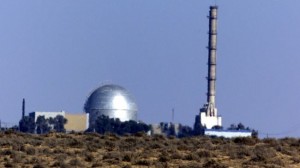 BRUSSELS, Oct 2 (Reuters) - Western governments are considering allowing Iran to continue some uranium enrichment, as part of a possible deal to resolve a decade-old dispute that Tehran says it wants to reach within six months, a senior EU diplomat said.
BRUSSELS, Oct 2 (Reuters) - Western governments are considering allowing Iran to continue some uranium enrichment, as part of a possible deal to resolve a decade-old dispute that Tehran says it wants to reach within six months, a senior EU diplomat said.The new stance - a reaction to President Hassan Rouhani's overtures to the West - would mean easing a long-standing demand that Iran suspend all enrichment, due to concerns Tehran could be developing nuclear weapons.
In an interview with Reuters, Lithuanian Foreign Minister Linas Linkevicius said: "I believe part of the game is that if the Iranians prove that whatever they are doing is peaceful, it will, as I understand, be possible for them to conduct it."
"It's conditional. It is not a done deal, but nevertheless it is a possibility to explore," he said. "Thanks to this rapprochement. How it will look, we don't know."
Lithuania holds the rotating presidency of the European Union until the end of this year, giving Linkevicius a closer insight into many internal policy debates.
A series of U.N. Security Council resolutions call on Iran to halt enrichment. One of them demands "full and sustained suspension of all enrichment-related and reprocessing activities."
Iran has refused to comply, saying its membership of the Nuclear Non-Proliferation treaty (NPT) gives it the right to pursue peaceful nuclear technology. That refusal has drawn several rounds of U.N. and Western sanctions.
Rouhani, a relative moderate elected in June, has reiterated Iran's insistence that it does not seek nuclear weapons, but has promised to clear up international concerns, hoping for an easing of sanctions that have hit its ability to export oil.
Western diplomats are cautious about the rapprochement, saying Iran has yet to offer any concrete proposals.
But, privately, many acknowledge that Tehran would likely need to be allowed to keep some lower-level enrichment activity as part of a broader political settlement, as long as U.N. inspectors were allowed sufficient oversight powers.
Israel, which says the prospect of a nuclear-armed Iran is a threat to its existence, is insistent that nothing short of an end to enrichment is acceptable.
In a series of negotiations since April last year, six world powers have told Iran to stop enriching uranium to 20 percent fissile purity - a level that closes an important technological gap towards making weapons-grade material.
That demand will not change, diplomats say. But, in theory, Iran could be allowed to continue lower-level enrichment, up to 5 percent, to produce fuel suitable for�nuclear power�plants.
The next round of the talks between Iran and the six world powers, will be held in Geneva on Oct. 15-16.
By Reuters
The Iran Project is not responsible for the content of quoted articles.










